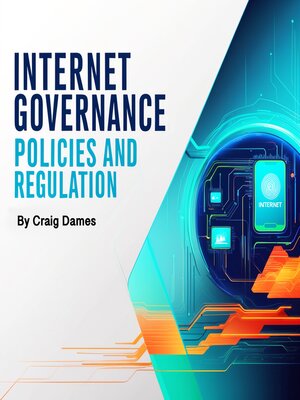
Sign up to save your library
With an OverDrive account, you can save your favorite libraries for at-a-glance information about availability. Find out more about OverDrive accounts.
Find this title in Libby, the library reading app by OverDrive.



Search for a digital library with this title
Title found at these libraries:
| Library Name | Distance |
|---|---|
| Loading... |
Internet governance refers to the development and application of rules, policies, and practices that shape the evolution and use of the internet. It involves multiple stakeholders, including governments, private sector entities, civil society organizations, and technical communities. As the internet has grown from an academic experiment to a global infrastructure, the need for effective governance has become increasingly crucial. The way the internet is managed impacts digital rights, economic development, and global security, making governance a central issue in today's interconnected world.
The origins of internet governance can be traced back to the early days of the internet, when management was primarily handled by academic and research institutions. Over time, as commercial interests and governmental involvement increased, governance structures evolved to accommodate new challenges. Organizations like the Internet Corporation for Assigned Names and Numbers (ICANN) and the Internet Governance Forum (IGF) were established to facilitate discussions on technical coordination, policy-making, and regulation. The involvement of international bodies such as the United Nations further highlights the growing importance of internet governance in global affairs.
A fundamental aspect of internet governance is the balance between different stakeholder interests. Governments seek to regulate the internet to ensure national security, protect citizens' rights, and maintain economic stability. Meanwhile, private companies advocate for minimal regulation to encourage innovation and market growth. Civil society organizations focus on issues such as privacy, digital rights, and access to information. This multistakeholder model aims to create a collaborative and inclusive approach to governance, but it also presents challenges in reaching consensus on key issues.







